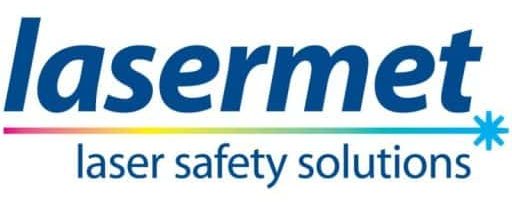Healthcare Professionals: Dentists, Registered Nurses, and Doctors
Prior to 2010 all users of lasers and IPLs in England had to be registered with the Care Quality Commission (previously known as the Healthcare Commission). These regulations required Clinics to appoint an LPA and an EMP to ensure that all lasers and IPLs were used safely within a clinical or dental setting.
In 2010, laser and IPLs fell out of the scope of CQC regulation and it became the treatments themselves (the regulated activity) that triggered registration rather than the method used to treat. For non-healthcare professionals providing cosmetic/aesthetic treatments (such as hair removal, skin rejuvenation and tattoo removal) the requirement to register with a regulating body was removed and it fell to local authorities to regulate. For Clinics in London Boroughs (and some administrations in England such as Nottingham) this was done via an application for a Special Treatment Licence and standards developed along similar lines to those previously enforced by the CQC (e.g. the appointment of an LPA and EMP to oversee safe working practises).
In areas where there was no requirement for a Special Treatment License, the onus fell to individual Clinics to provide safe and controlled working conditions for their staff and for their Clients.
Lasermet’s support services have evolved to meet the needs of all laser and IPL users across England. For Clinics requiring a Special Treatment License we not only provide LPA and EMP support but are also able to help with the license application process.
For Clinics outside of London (and other areas where Councils do not regulate) we continue to provide LPA and EMP support. In a saturated and largely unregulated market many Clinics choose to retain the services of an LPA and EMP to ensure standards of excellence continue in the laser and IPL sector.
England
The introduction of the Health and Social Care Act in 2010 changed the way that healthcare professionals were regulated. All healthcare professionals providing certain treatments or surgical procedures (known as regulated activities) required CQC registration. Although some exemptions existed the majority of all dental services and healthcare provision fell under the CQC umbrella. Lasermet was instrumental in providing help and support to over 300 clinics and dental practices registering with the CQC for the first time and to this day still provides help to these healthcare providers on CQC compliance.
For those healthcare professionals using lasers, there is no separate registration process as registration is triggered by what treatments are undertaken rather than how they are done but clinics and practices do need to take into account guidelines produced by the MHRA on the safe use of laser and IPL equipment in order to comply with the CQC’s Fundamental Standard on Premises and Facilities. Lasermet’s LPA service has been tailored to CQC requirements, ensuring that dental services and clinics stay safe and compliant when using lasers and light sources.
For those requiring a complete package of support for CQC regulation and or registration, please take a look at our comprehensive range of CQC Support Services.
Northern Ireland
In Northern Ireland, all Clinics providing cosmetic laser treatments with a Class 3b or 4 Lasers and/or Intense Pulsed Light (IPL) source, need to register with RQIA as an independent hospital providing prescribed techniques and technologies.
The Minimum Care Standards for Independent Health Care Establishments define both Common Standards which apply to all independent health care facilities, and service specific standards for Lasers and IPLs. The latter standards require Clinics to appoint a Laser Protection Adviser (LPA) and an Expert Medical Practitioner (EMP).
Lasermet’s LPA and EMP support service for Clinics in Northern Ireland has been specifically designed to help streamline the process of registration, guiding Clinics through the Common and Service Specific Standards. For more information, please take a look at our page dedicated to LPA and EMP support in Northern Ireland.
Scotland
All independent clinics in Scotland are required to be registered with Healthcare Improvement Scotland (HIS), including clinics that provide cosmetic/aesthetic treatments using a Class 3B or 4 Laser. Beauticians and beauty therapists that provide cosmetic treatments are not included in the definition of an independent clinic and are not required to register.
Lasermet’s LPA and EMP support service for Clinics in Scotland has been specifically designed to help streamline the process of HIS registration and guides Clinics through the Health and Social Care Standards. For more information, please take a look at our page dedicated to LPA and EMP support in Scotland.
Wales
All clinics based in Wales offering IPL and laser treatments for hair removal, skin rejuvenation, thread vein treatment as well as tattoo removal are required by law to register with the Healthcare Inspectorate Wales (HIW). Part of the National Minimum Standards for Independent Healthcare in Wales requires that all laser and IPL Clinics must have treatment protocols written by an expert medical (or dental practitioner if using a laser for dentistry) and advice on operational safety from a certificated Laser Protection Adviser.
Lasermet’s LPA and EMP support service for Clinics in Wales has been specifically designed to help streamline the process of HIW registration and guides clinics through the National Minimum Standards. For more information, please take a look at our page dedicated to LPA and EMP support in Wales.
